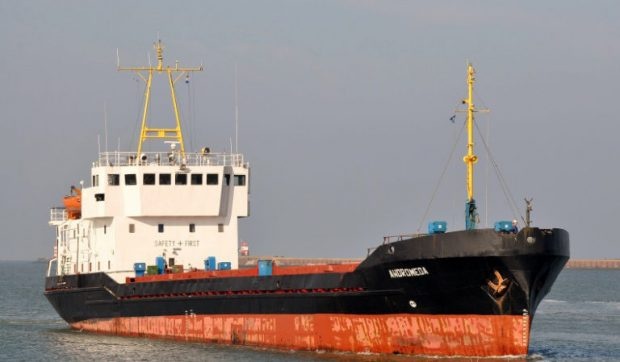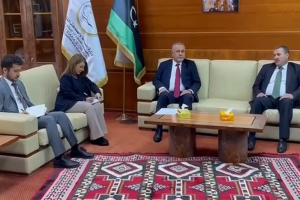The Presidential Council has established contacts with Turkey and Greece to verify the news of the seizure of a ship in Greece carrying containers loaded with explosives after leaving a Turkish port.
The Libyan Foreign Ministry said in a statement on Friday that it had demanded Greek authorities to inform it of the latest results regarding the investigations, stressing that it is following the case with the relevant authorities in Greece and Turkey through diplomatic channels.
The Ministry expressed deep alarm and condemnation in what they described as “any attempt to harm Libya in any way”, stressing that the government is committed to international laws and norms and relevant United Nations resolutions.
On the other hand, the House of Representatives (HoR), based in eastern Libya, called on the United Nations Support Mission in Libya (UNSMIL), the Security Council, the European and African Unions and the League of Arab States, to begin urgent investigations into the seizure of the explosives aboard the ship, Andromeda, which set off from Turkish ports and destined for Libya.
The HoR stressed in a statement on Friday that it is necessary to reveal who was behind this “serious incident.”
Meanwhile, the Turkish Embassy in Libya denied on Friday that the destination of the ship was Libya.
The Embassy confirmed in a statement that the ship was sailing for Ethiopia after leaving Turkey, indicating that it docked in the port of Mersin on the 23rd of last November, loaded with a shipment of dangerous materials, and registered to Ethiopia.
The Embassy added that the Turkish authorities are in constant contact with the Libyan Foreign Ministry, explaining that it will send the information they have on the case to Libya and to the United Nations directly.
On Thursday, the owner of the ship Andromeda told Greek media that the cargo of explosives discovered on his ship was headed to Libya for safekeeping, not for delivery.
The ship owner, Theodoros Rellos, told Greek agency AMNA that the arrests were a misunderstanding, and said his firm had a different reason for considering to send the ship to Libya.
“The ship was unable to enter the Suez Canal as it could not pay the toll,” Rellos said.
When he could not find a port where they could unload the cargo, the ship owner received an offer from Misrata Port, but he refused because of the UN arms embargo on Libya.
Later, the ship was intercepted by the Greek Coast Guard on suspicion that it was going to Libya.








